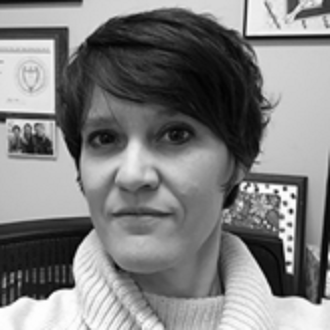 A Sensorimotor Microelectrode Brain-Machine Interface
A Sensorimotor Microelectrode Brain-Machine Interface
STUDY BASICS
Do you have little or no ability to use your hands due to a cervical spinal cord injury, brainstem stroke, or spinal stroke? You may be eligible to take part in a research study involving brain-machine interface (BMI) technology or brain-computer interface (BCI). BCI/BMI technology uses signals recorded from the brain to control devices such as a computer or a robotic limb. Compensation provided.
STUDY PURPOSE
After a spinal cord injury, brainstem stroke, or spinal stroke, many people experience paralysis and are unable to use or feel their hands. Although devices exist to help people with paralysis perform activities of daily living, currently available technologies can be unreliable and difficult to use.
The purpose of this study is to learn more about a brain-machine interface (BMI) technology or brain-compuer interface (BCI) that may allow a person with paralysis to use brain activity to control an external device, such as a robotic arm, and receive sensory feedback. The BCI/BMI technology in this study includes temporary sensors implanted in the parts of the brain that control movement and sensation, and training to generate brain activity that can be interpreted by a computer and translated into movement. Researchers hope their findings will support the development of a fully implantable BCI/BMI system with motor and sensory capabilities in the future.
COULD THIS STUDY BE RIGHT FOR YOU?
- Ages 22-70
- Have limited or no ability to use both hands due to cervical spinal cord injury, or brainstem stroke, or spinal stroke
- Communicate in English
- Live within 2 hours of the University of Pittsburgh or are willing to travel to the University of Pittsburgh for BrainMachine Interface (BMI) training (housing may be provided)
- Able to view a computer monitor (glasses are OK)
- Do not have any other type of implantable device, such as a pacemaker, spinal cord stimulator, cochlear implant, or deep brain stimulator
- No family or personal history of seizure disorder
- Not pregnant and not planning to become pregnant in the next 25 months
WHAT PARTICIPANTS CAN EXPECT
Participation lasts up to 25 months. As part of this study, participants will undergo two inpatient neurosurgical procedures approximately one year apart to implant and remove the sensors in the brain. While the sensors are implanted, the research team will conduct BrainMachine Interface training sessions up to 5 days per week. Other tests and procedures during the course of the study include questionnaires and evaluations, physical exams, blood draws, electroencephalography, and MRI scans.
IRB: STUDY19100269
- sIRB A Sensorimotor Microelectrode Brain-Machine Interface for Individuals with Significant Upper Limb ImpairmentMEET THE RESEARCHER

Michael Boninger
Dr. Michael Boninger is a Professor and UPMC Endowed Vice Chair for Research in the Department of Physical Medicine & Rehabilitation at the University of Pittsburgh, School of Medicine. He has joint appointments in the Departments of Bioengineering, Rehabilitation Science and Technology and the McGowan Institute of Regenerative Medicine. He is Senior Medical Director for Post-Acute Care for the Health Services Division of UPMC. He is also a physician researcher for the United States Department of Veterans Affairs. Dr. Boninger has an extensive publication record of over 270 papers. His central research focus is on enabling increased function and participation for individuals with disabilities through development and application of assistive, rehabilitative and regenerative technologies. Dr. Boninger holds 4 United States patents and has received numerous honors, including being inducted into the National Academy of Medicine (formerly the Institute of Medicine) of the National Academy of Science.
MEET THE COORDINATOR

Debbie Harrington
Debbie Harrington is a Senior Research Coordinator in the Rehabiliation and Neural Engineering Laboratories, which is part of the department of Physical Medicine and Rehabilitation in the School of Medicine. Debbie provides regulatory expertise and support to maintain compliance and regular correspondence with the Data and Safety Monitoring Board (DSMB), the Food and Drug Administration (FDA), and the University of Pittsburgh Institutional Review Board (IRB), all which monitor our human subject research. She also provides assistance with recruitment of participants, screening procedures, and hospitality of our research participants.
 https://pittplusme.org/study/1585
https://pittplusme.org/study/1585